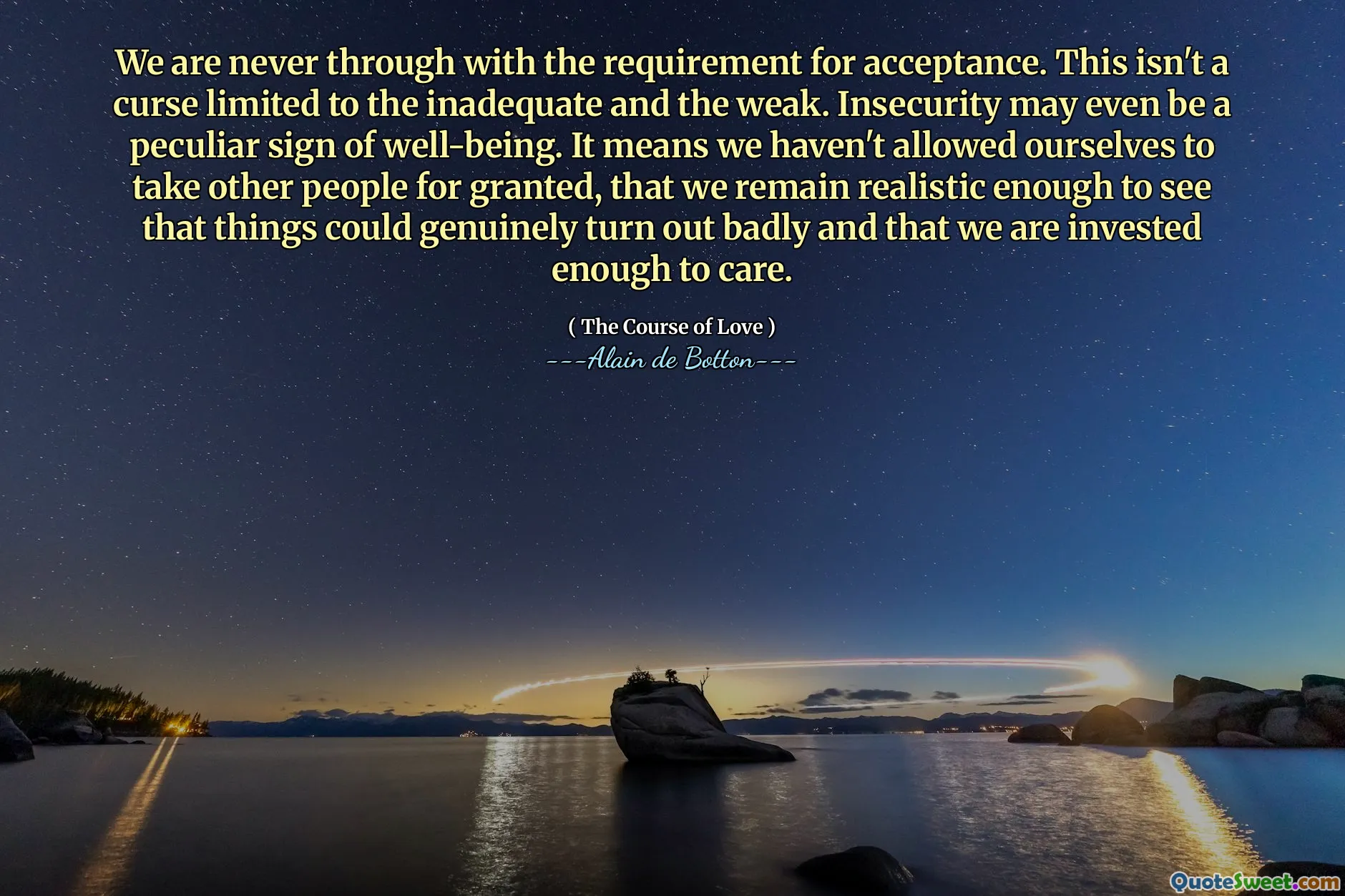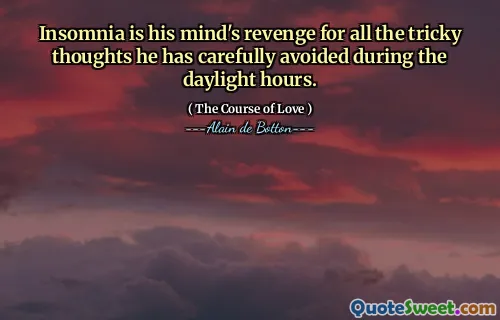
We are never through with the requirement for acceptance. This isn't a curse limited to the inadequate and the weak. Insecurity may even be a peculiar sign of well-being. It means we haven't allowed ourselves to take other people for granted, that we remain realistic enough to see that things could genuinely turn out badly and that we are invested enough to care.
[Markdown format]
This quote poignantly highlights the paradoxical nature of acceptance and insecurity in human relationships. It suggests that the need for acceptance is an ongoing process, not a one-time achievement. At its core, this insight reminds us that vulnerability is inherently linked to how much we value our connections with others. When we feel insecure, it often reveals that we haven't become complacent or overly self-assured; instead, it signals that we understand the fragile and transient nature of meaningful bonds. Accepting this impermanence allows us to appreciate what we have without taking it for granted, encouraging genuine care and attentiveness.
Furthermore, the idea that insecurity can be a sign of well-being flips conventional wisdom. Typically, insecurity is viewed negatively, associated with weakness or emotional instability. However, this quote reframes insecurity as a conscious acknowledgment of life's uncertainties and the importance we attach to maintaining authentic relationships. Recognizing our vulnerabilities can foster humility and deepen our empathy, prompting us to invest more sincerely in others.
Ultimately, the quote embraces the notion that human growth involves continual efforts in foster acceptance—both of ourselves and others—knowing that such acceptance requires ongoing patience, effort, and a readiness to confront discomfort. It encourages us to see insecurity not as a flaw but as a testament to our invested and caring nature, fueling our pursuit of genuine, meaningful connections.
---Alain de Botton, (The Course of Love)---








